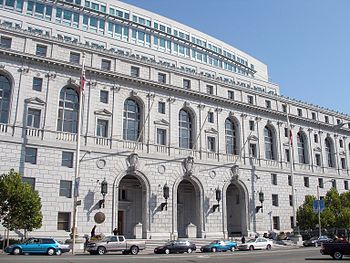|
Listen to this Article
|
This month, the California Supreme Court decided Sanchez v. Valencia Holding Co., LLC, ___ P.3d ___, 2015 WL 4605381 (2015), wherein it held that the anti-waiver provision of California’s consumer protection statute is preempted by the Federal Arbitration Act (“FAA”). Id. at 15.

The case involved a car purchaser who filed a putative class action against a dealership regarding the sale of a car. Claims were made pursuant to California’s Consumer Legal Remedies Act (“CLRA”), Cal. Civ. Code §§ 1750-1754, among other statutes. When the dealership moved to compel arbitration, the trial court denied the motion, finding the class waiver unenforceable.
While the case was before the Court of Appeal, the U.S. Supreme Court decided AT&T Mobility LLC v. Concepcion, 131 S.Ct. 1740 (2011), holding that the FAA preempted California’s judicial bar on class action waivers in consumer agreements. Id. at 1748. Even so, the Court of Appeal held that a separate provision of the arbitration agreement, and thus, the arbitration as a whole, was unconscionable. The car dealership appealed to the California Supreme Court.
After reaffirming the propriety of “generally applicable contract defenses, such as fraud, duress, or unconscionability,” Justice Goodwin Liu carefully underscored the questionable nature of the underlying unconscionability finding. See 2015 WL 4605381, at *8-14. This holding accounted for the lion’s share of Justice Liu’s analysis. Yet a couple paragraphs on the last page of the opinion carry more weight than the position and space they occupy might suggest. See id. at *15.
In addition to the unconscionability defense, the purchaser invoked the CLRA’s bar on class action waivers in consumer agreements. The CLRA classifies the waiver of any of its provisions, which includes the right to bring class actions on behalf of “consumers similarly situated,” Cal. Civ. Code § 1781(a), as “contrary to public policy,” § 1780. See 2015 WL 4605381, at *15. The court was not swayed. Justice Liu instead explained that “Concepcion‘s rule that states may not require a procedure that interferes with fundamental attributes of arbitration, even if it is desirable for unrelated reasons, applies equally to requirements imposed by statute or judicial rule.” Id. (internal quotations and citations omitted).
But the FAA’s preemptive weight regarding statutory bars on class waivers is not readily apparent in Concepcion. In fact, Justice Scalia explained the Court’s rejection of California’s judicial bar on class action waivers – which was established in Discover Bank v. Superior Court, 36 Cal.4th 148 (2005) – by reference to the longstanding rule that “a federal statute’s saving clause cannot in reason be construed as allowing a common law right, the existence of which would be absolutely inconsistent with the provisions of the act.” 131 S.Ct. at 1748 (emphasis added) (internal quotations and modifications omitted). Though Discover Bank interpreted two provisions of the California Code of Civil Procedure, Concepcion merely struck down Discover Bank‘s construction of those provisions, not the provisions themselves. See id. at 1753 (“California’s Discover Bank rule is preempted by the FAA”).
Notwithstanding the CLRA anti-waiver provision’s apparent inconsistency with “arbitration’s fundamental attributes of speed and efficiency,” Sanchez, 2015 WL 4605381, at *15, its statutory roots seem to place it beyond the FAA’s preemptive reach, at least as far as Concepcion is concerned. Indeed, the court cites no authority supporting its finding that Concepcion “applies equally to requirements imposed by statute or judicial rule.” Id.
The slim majority by which Concepcion raises another question. Given its potential harm to federalism, it is not clear that Justice Kennedy would have joined the expansive reading of Concepcion upon which Sanchez relies. See, e.g., Bond v. United States, 131 S.Ct. 2355, 2364 (2011) (“Federalism secures the freedom of the individual. It allows States to respond, through the enactment of positive law, to the initiative of those who seek a voice in shaping the destiny of their own times without having to rely solely upon the political processes that control a remote central power.”) (emphasis added).
A far cry from the all-to-recent end to its resistance to FAA preemption, compare Discover Bank, 36 Cal.4th at 163-64 with Iskanian v. CLS Transportation Los Angeles, LLC, 59 Cal. 4th 348, 363-64 (2014), Sanchez suggests that the California Supreme Court is now prepared to proceed in near-unanimity where a bare majority of the U.S. Supreme Court quite likely would not.




